Fenves Addresses Emory Campus Occupations
The university's first Jewish president suffered votes of no confidence by students and faculty.
Like so many presidents of large, prestigious universities, Emory University’s Gregory Fenves has, in recent weeks, been at the center of the controversy over how best to handle pro-Palestinian demonstrators who disrupt everyday campus life.
Fenves, who came to Emory in 2020, dealt quickly and decisively last month with campus protesters who decided to set up camp on the university’s grassy central quadrangle. On the morning of April 26, he directed Emory’s campus police force, which is said to number just eight full-time officers, to clear the encampment from Emory property.
Emory police, in turn summoned help from the George State Patrol and the Atlanta police department. In a prepared statement Fenves described why he called in law enforcement.
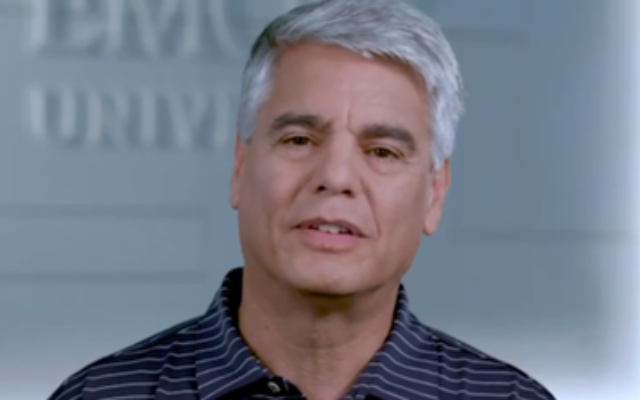
“Early yesterday evening, a large group of protesters left the Quad and gathered outside the Candler School of Theology. Some protesters pinned police officers against the building’s glass doors, threw objects at them, and attempted to gain access to the building. These actions against officers prompted an increased law enforcement presence on campus.”
He went on to say that “the fact that members of our community were arrested upsets me even more and is something that I take very seriously.”
The arrest of 28 persons on the campus on the morning of April 26 and the criticism Fenves has endured from students and faculty has put him on the defensive, but in the weeks since, Fenves has held firm.
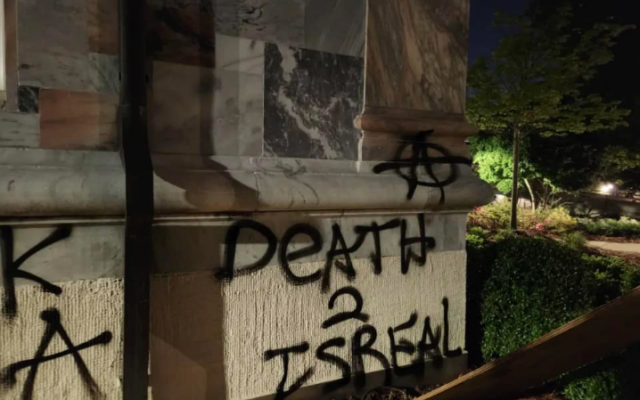
He told a meeting of Emory’s University Senate on May 7 that the decision to call in law enforcement soon after the protesters set up their tents was the right one. In the past year he noted, Emory has seen at least 70 protests in various forms, all of which were handled without incident, but the pro-Palestinian takeover of the quadrangle just before commencement ceremonies there was something entirely different.
“The longer it went on,” Fenves emphasized, “the more difficult it would be to end the encampment, so that was my decision. In terms of negotiations, negotiating to end conduct that’s not permitted, that’s something I’m concerned about doing because of the precedent that it can set.”
In the week following the action, Fenves said he met with the Emory Senate Executive Committee and held large webinars to answer questions from students and faculty. His discussion with Emory’s faculty and staff on May 7 came just a day after he announced the decision to relocate commencement ceremonies from the Emory campus.
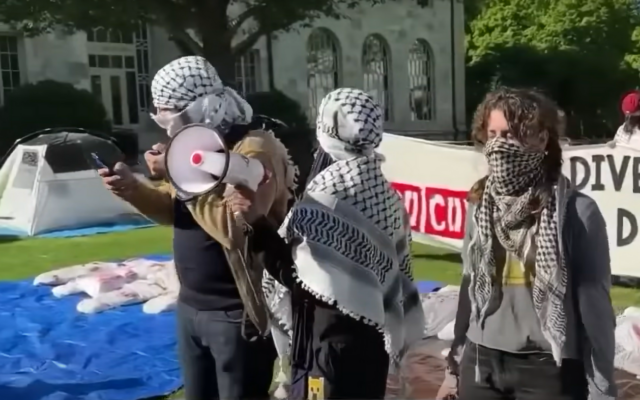
Graduation ceremonies, instead, took place in Gwinnett County, 16 miles away, where the exercises were held at the Gas South Arena, a large convention and concert venue that seats 13,000. The hasty and unprecedented move was done because of what Fenves termed “concerns about safety and security.”
He didn’t elaborate but he did point out that this year the crowded quadrangle and the university campus generally was not the right place to say farewell to the class of 2024.
“It was just going to be very challenging.” Fenves said, “to provide that environment for tens of thousands of people on campus. So that is an example of how we’re taking safety as a paramount consideration.”
Fenves, who is Emory’s first Jewish president and whose father was a Holocaust survivor, suffered a vote of no confidence by both students and faculty following his action to end the pro-Palestinian occupation of the campus.
In the days leading to the encampment, anti-Israel graffiti was spray painted on university buildings and scrawled on restroom walls. When the university’s maintenance department tried to deal with the damage they were occasionally harassed by protesters.
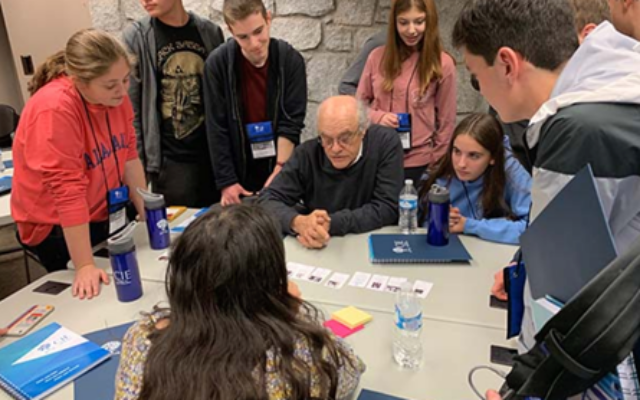
For his part, Fenves, indicated that he has no intention of bowing to the protestors’ demands to divest their investments in companies that do business in Israel. Emory has a lengthy history of support for Israel studies and the Center for Israel Education. On Wednesday, May 29, the center held an on line discussion moderated by Emory professor Ken Stein on “Israel’s 9/11 – Anti-Zionism, Antisemitism and Academic Unease.”
Fenves’ immediate goal, as he indicated to the university’s Senate earlier this month, is to begin to repair some of the damage that has occurred by the faculty and student votes of no confidence in his leadership.
“I heard the voices of the faculty who have voted, and I’ve heard the voices of the students. I’m disappointed that it has come to that. My goal, as I mentioned earlier, is to begin to rebuild their trust. It won’t happen soon, and it won’t happen quickly, but that is my goal.”



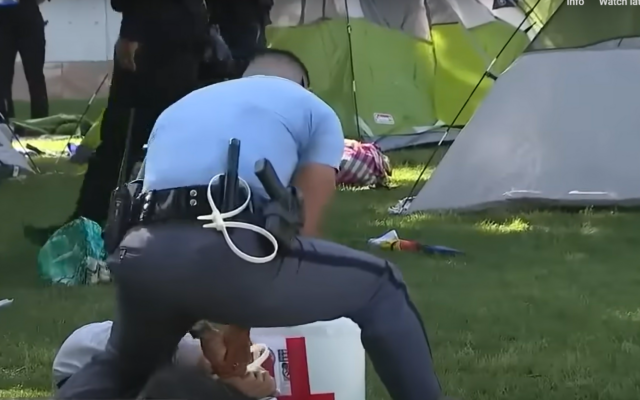
comments